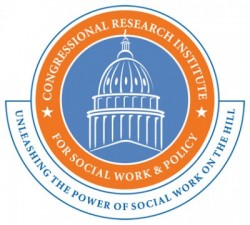After Arizona Senator John McCain’s thumbs down last week sent the so-called “skinny” healthcare bill to an inglorious defeat, most Americans saw his action as the death knell for Republican efforts to repeal and replace the Affordable Care Act (ACA). Not so in the White House. President Trump sent a series of tweets Saturday morning admonishing Republican senators not to give up the fight and to press for another vote for anything that would erase the term Obamacare from the lexicon.
Just a few hours before, Trump seemed to have accepted defeat and vowed to let Obamacare implode—something he said needed to happen to bring obstructionist-minded Democrats to the table to repeal and replace the ACA.
Seven years after the passage of the Affordable Care Act, Republicans have yet to devise a plan that would replace what they derided as “Obamacare” without leaving millions of Americans without health insurance. The skinny bill they tried to ram through the Senate last week was an insult to all Americans. It passed the House in 2015 because Republicans knew then President Obama would veto the bill. It nearly passed the Senate after Speaker Paul Ryan and House Republicans gave their assurance that the House would not try to pass the legislation. Now it sticks in their craw and that of President Trump that Barack Obama’s signature legislative achievement appears to be safely ensconced as the law of the land.

Senator McCain casting his no vote.
Howard University economics professor William Spriggs makes a strong argument for why Republican desires to leave healthcare solely to market forces is a bad idea. He contends healthcare is a public good and that nearly all modern societies—save the US of A—recognizes it as a human right. For all citizens to have access to affordable quality care, it must be universal so that the sickest citizens share the cost with the healthiest. Expanding Medicaid ensures sicker impoverished citizens have access to healthcare and not be priced out of the marketplace. He concludes that Republicans have proved there is no market-based solution to providing a public good such as healthcare. Yet, conservatives undying faith in the free market makes them willing to leave many Americans at risk.
In the six months since he took office, President Trump has been on a quest to undo the legacy of his predecessor without regard about the consequences of the policies and regulations he is undermining. From the Clean Power Plan to the Trans-Pacific Partnership to withdrawing from the Paris Climate Agreement, he has signed executive order after executive order overturning Obama-era policy. Yet, the most prized policy—Obamacare—remains out of reach. Some say the Narcissist-in-Chief also suffers from ODS—Obama Derangement Syndrome which may account for some of his disruptive behaviors. Many in his own party are openly questioning his stability but few have had the temerity to criticize him.
McCain’s fellow Arizona Senator Jeff Flake takes his party to task in his new book, Conscience of a Conservative, for its complicity in creating the climate that enable Donald Trump’s successful run for the White House. He writes in Politico: “It was we conservatives who, upon Obama’s election, stated that our No. 1 priority was not advancing a conservative policy agenda but making Obama a one-term president—the corollary to this binary thinking being that his failure would be our success and the fortunes of the citizenry would presumably be sorted out in the meantime. It was we conservatives who were largely silent when the most egregious and sustained attacks on Obama’s legitimacy were leveled by marginal figures who would later be embraced and legitimized by far too many of us.”
One other thing Professor Spriggs notes in his blog post is the country has moved from a place where the bulk of wealth was share by the middle 60 percent to where the bulk of wealth has moved to the top 20 percent and, if left unchecked, will soon move to the top 10 percent. This remains the greatest challenge to achieving any kind of shared prosperity in the nation, yet no one on either side of the aisle seems to have a plan to reduce economic inequality. Extreme inequality made it more difficult to find a market-based solution for healthcare. Until economic fairness is addressed sufficiently, extreme inequality will keep millions of Americans struggling in many aspects of our lives.
Written By Charles E. Lewis Jr., Ph.D
Repeal and Replace is a Dead Issue Mr. President was originally published @ Charles Lewis – Congressional Research Institute for Social Work and Policy and has been syndicated with permission.
Our authors want to hear from you! Click to leave a comment
Related Posts






